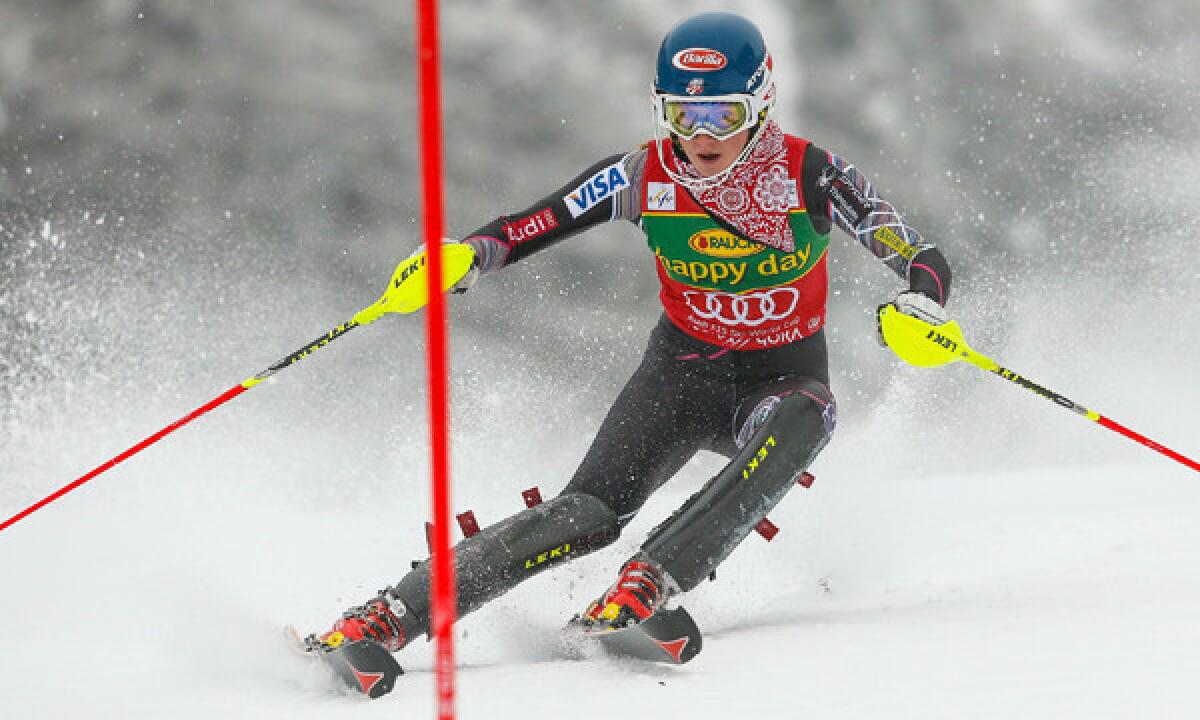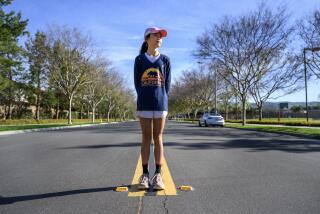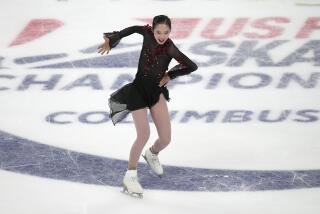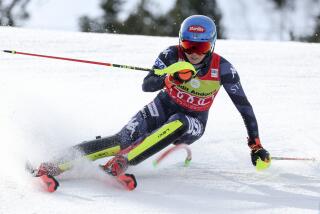Mikaela Shiffrin has envisioned her Olympic moment

SOCHI, Russia — Tiger Woods at age 20 used his first pro tournament, the Greater Milwaukee Open, to say, “Hello, world.”
Eighteen years later, a month shy of her 19th birthday, U.S. ski team star Mikaela Shiffrin sat down at the Gorki Media Center and announced similar intentions.
She had been in Sochi for 18 hours but acted as though she had been raised around the corner.
FRAMEWORK: Best images from Sochi
Her Olympic debut, the women’s giant slalom, was three days away.
Remember when you were 18 and couldn’t fill out a bank-deposit slip?
Could you imagine the pressure of being favored to win a gold medal?
Shiffrin fiddled with the microphone a bit, hit the red button and basically hit the ground skiing.
Shiffrin was as interested in meeting the world as it was in meeting her. She said she had already given this news conference a dozen times in her head, envisioning the questions.
“I’ve wrote all this down,” Shiffrin said before a swarm of international journalists. “The questions you guys are asking, I wrote answers down in my notebook, just trying to take out the variables, just thinking things that I want to say, and things that I want to feel in the starting gate.”
Shiffrin is 18 going on 40.
At a similar age, future American Olympic champion Picabo Street was slamming down ski poles and screaming at ski technicians.
Lindsey Vonn, then Lindsey Kildow, was 17 when she skied at the 2002 Salt Lake City Games but was years from becoming a polished star.
Shiffrin, at 17, was the world slalom champion. As a kid she wanted to be Olympic champion at age 16, only to learn later the Winter Olympics weren’t held that year.
So she’s had to wait until now.
There are prodigies in skiing. It helps to come from a skiing family. Shiffrin’s dad, Jeff, and mom, Eileen, were accomplished racers.
They certainly instilled skiing in Mikaela, and her older brother, Taylor. They crisscrossed from Colorado to Vermont to give Mikaela the best environment and coaching.
But all the love, money and coaching in the world couldn’t give Mikaela the innate ability she already possessed.
Coaches call it being “early in the turn” and having “great touch” on the snow.
The added bonus was Shiffrin’s mental acumen and toughness. That’s allowed her the power to practice and prepare.
“I’m sure come race day, there’s going to be something that goes differently,” she said. “And the trick is to be able to see that and expect it and move forward. But for the most part, I’ve envisioned this moment for quite a while.”
In her debut Olympic, in a drizzling rain, Shiffrin drew bib No. 6 in Tuesday’s giant slalom at Rosa Khotur. She was sandwiched between Anna Fenniger of Austria, this year’s super G Olympic champ, and defending giant slalom gold medalist Viktoria Rebensburg of Germany.
Shiffrin pushed out confidently and crossed with a first-run time of 1 minute 18.79, which put her .91 behind Slovenia’s Tina Maze, who skied first on the best conditions.
Shiffrin’s run certainly kept her in medal contention heading into Tuesday’s afternoon run.
Shiffrin already has seven World Cup victories — as many as 29-year-old teammate Julia Mancuso, a four-time Olympic medalist.
One day, Shiffrin will be a five-event threat and compete for medals in downhill and super-G.
For now she’s working her way up from slalom, where she is already No. 1 in the world.
She vowed last summer to get “on the podium” in giant slalom and followed through with second- and third-place finishes in World Cup races.
U.S. women’s Coach Alex Hoedlmoser sees this kind of drive every decade or so.
“It’s not any different than Lindsey was at her age,” he said. “She was the same way.”
Hoedlmoser said he’s not worried about Shiffrin handling the pressure.
“She has shown several times she is capable of being able to handle those situations,” he said. “I’ve seen it at the world championships and at the World Cup finals.”
Shiffrin doesn’t seem worried either. She studied the first week of the Olympics in Europe, where she was training in Italy, Germany and Austria.
“I think there will definitely be more nerves, because this means something to the rest of the world,” she said, “and that also makes it mean something more to me.”
That’s why Shiffrin has already plotted out all the scenarios: win, lose, draw and even face-plant.
“I’ve definitely visualized myself here,” she said, “talking to you all. And on the top step of the podium, and the third step of the podium, wherever it might be.
“I’ve envisioned myself crashing, because I know what mistake I made in my head to crash. And I know I’m not going to do that in a race.”
Excuses at the Olympics are for those who finish fourth. Shiffrin said a champion has contingency plans.
“If I don’t win then it’s because it’s something I did with my skiing,” she said. “And if I do win, then it’s because of something I did with my skiing.”
Shiffrin seems beyond ready.
“I don’t think it’s possible to be too prepared,” she said. “It is possible to think too much. So that’s the trick; on race day, I turn all those extra thoughts off.…I don’t feel any doubt right now, I just feel really excited.”
Twitter: @dufresnelatimes
More to Read
Go beyond the scoreboard
Get the latest on L.A.'s teams in the daily Sports Report newsletter.
You may occasionally receive promotional content from the Los Angeles Times.







